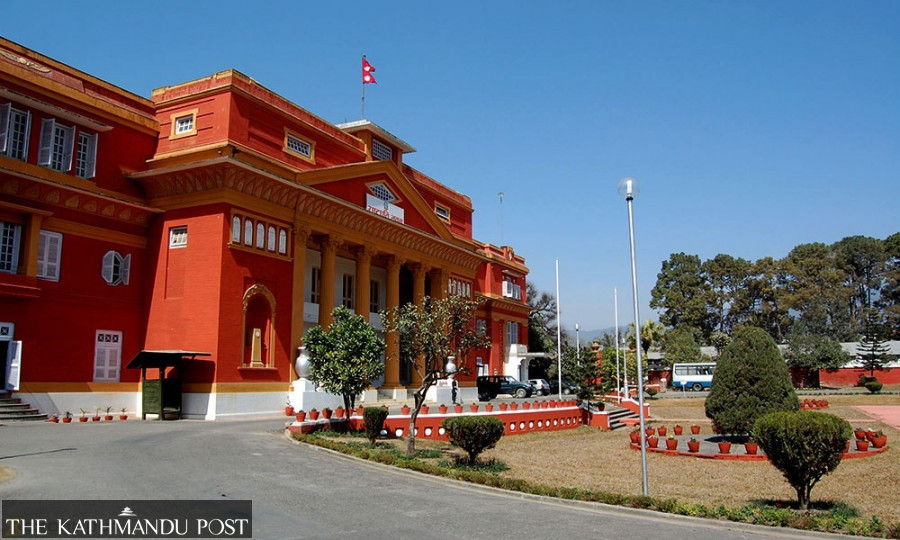National
Ordinance on Constitutional Council Act scrapped
President repealed the ordinance on the recommendation of the Deuba government hours before the meeting of the reinstated House.
Post Report
An ordinance to amend the Constitutional Council (Function, Duties, Power and Procedure) Act-2010 was scrapped on Sunday, hours before the first meeting of the reinstated House of Representatives.
President Bidya Devi Bhandari, on the recommendation of the Sher Bahadur Deuba government, scrapped the ordinance, which was reissued by the KP Sharma Oli government on May 4 after the same ordinance issued on December 15 last year couldn’t get through the Parliament during its winter session.
“The President has scrapped the ordinance on the recommendation of the Cabinet as per Article 114 (2) of the Constitution of Nepal,” reads a statement issued by the Office of the President.
The ordinance had changed the provisions regarding holding the meeting of the Council. The amended provisions said a meeting of the Constitutional Council could be held if a majority of members were present.
Before the amendment, at least five members and the chairperson’s presence was a must to hold a meeting. The constitution has envisioned six members in the Council, with the prime minister as its chair.
Chief justice, Speaker, National Assembly chair, leader of the opposition and deputy Speaker are other members in the Council. Nepal’s Parliament, however, has not elected a deputy Speaker yet ever since Agni Sapkota was elected Speaker in January last year.
The Nepali Congress, which returned to power on July 13 after the Supreme Court order to appoint its President Sher Bahadur Deuba as prime minister, had been objecting to the ordinance.
When the Oli government presented the ordinance before the House on March 7, the day it commenced its meeting after it was revived following Oli’s December dissolution, the Nepali Congress, then the main opposition, had obstructed the session.
It claimed that the amendment, whereby the majority of the Council members could hold its meeting and make recommendations for the positions in constitutional bodies, was unconstitutional.
On May 21, Oli again dissolved the House. But the Supreme Court on July 12 ordered the restoration of the House.
The ordinance must have been presented in the first meeting of the lower house Sunday by the incumbent Sher Bahadur Deuba led government if it was not repealed.
The Council, led by Oli, had recommended appointments of 58 individuals to various constitutional bodies on December 15 last year and May 9. Among them, 52 were appointed. Along with the one related to the Constitutional Council, the Oli government had issued 16 ordinances.
According to officials at the Ministry of Law, Justice and Parliamentary Affairs, the fate of those who were appointed after the ordinance would be decided by the Supreme Court.
“Petitions challenging the appointments are currently sub judice. It will decide about the future of the appointees,” a senior official at the ministry told the Post. “The decision to withdraw the ordinance is political. As the Nepali Congress had objected to it, its government withdrew the ordinance.”




 22.12°C Kathmandu
22.12°C Kathmandu













